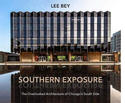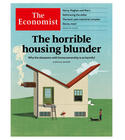I was a columnist in the print edition of Governing magazine for about five years. Sadly, the publication closed last year. But the company who owned it has relaunched Governing as an online only publication focused on the intersection of technology and public policy. read more »
Urban Issues
How Cities Lost Control of the Urban Revolution (or, Three Generations of Smart Cities)
- Login to post comments
The Luxury City is Going Bust
In a year when two boosters of the “luxury city,” Donald Trump and Michael Bloomberg, are vying to run the whole country, the very model that created their “success” is slowly unraveling. After roughly 20 years of big-city progress, measured by economic growth and demographic progress, the dense urban centers, including New York, are again teetering on the brink of decline. read more »
- Login to post comments
The Limits of Being “Near Transit”
In a recent paper, David King of Arizona State University, Michael Smart of Rutgers University and Michael Manville of UCLA cited the legendary urbanist Mel Weber on the importance of facilitating sufficient mobility for low-income citizens: “Our central mission is to redress the social inequities thrown up by widespread auto use, and our central task is to invent ways of extending the benefits of auto-like transportation to those who are presently carless.” read more »
- Login to post comments
The Overlooked Architecture of Chicago's South Side
Chicago is known as one of America’s great cities for architecture. But other than the Illinois Institute of Technology campus, designed by Mies van der Rohe, very little of the architecture of the South Side is included in the public’s mind when thinking about it. Lee Bey, former architecture critic of the Chicago Sun-Times and a South Side residents, aims to change this with his book read more »
- Login to post comments
The City as a Self-Organizing, Adaptive System - Part 2
In a preceding article, I argued that a "city-as-an-artifact" approach to planning misses the organic nature of cities, and, when used in action, this approach could result in disappointing, if well-intended, outcomes. Similarly, biomorphic models for cities fail to construct a unified, actionable theory of planning. read more »
- Login to post comments
To The Economist: Planning, Not Home Ownership, Caused the Housing Crisis
The January 16, 2020 cover story in The Economist magazine trumpeted “The West’s biggest economic policy mistake: It’s obsession with homeownership undermines growth, fairness and public faith in capitalism. “The Economist explains: read more »
Against the Current on LA River—When Will ‘Progressives’ Learn to Listen?
Frank Gehry doesn’t have any particular penchant for the concrete that lines the LA River. The world-class architect and designer does, however, bring a practical appreciation for the purpose of that concrete: It’s the stuff that provides flood control for homes and businesses along an 11-mile stretch through the heart of LA that would otherwise stand to be inundated in particularly heavy rains. read more »
- Login to post comments
Make America Affordable Again
The Department of Housing and Urban Development has asked for comments on eliminating regulatory barriers to affordable housing. This is my response. read more »
Be Careful When Citing Jane Jacobs: Her Conclusions Don’t Always Hold
As a professor who teaches about cities and the urban form, I very much appreciate the sidewalk ballets and street-corner societies that have historically existed in our nation’s urban centers. These features of the built-environment have long been powerful factors in the formation of both social capital, community, and a place’s identity. read more »
- Login to post comments
SB50: the More Real Estate Speculation and Free Air Rights Bill
SB50, the controversial Sacramento bill that would take zoning rights away from local communities, has been dubbed by its author, San Francisco State Senator Scott Wiener, as the “more homes” bill, but it would be much more appropriate to title it the “More Real Estate Speculation and Free Air Rights Bill.” read more »
- Login to post comments






















